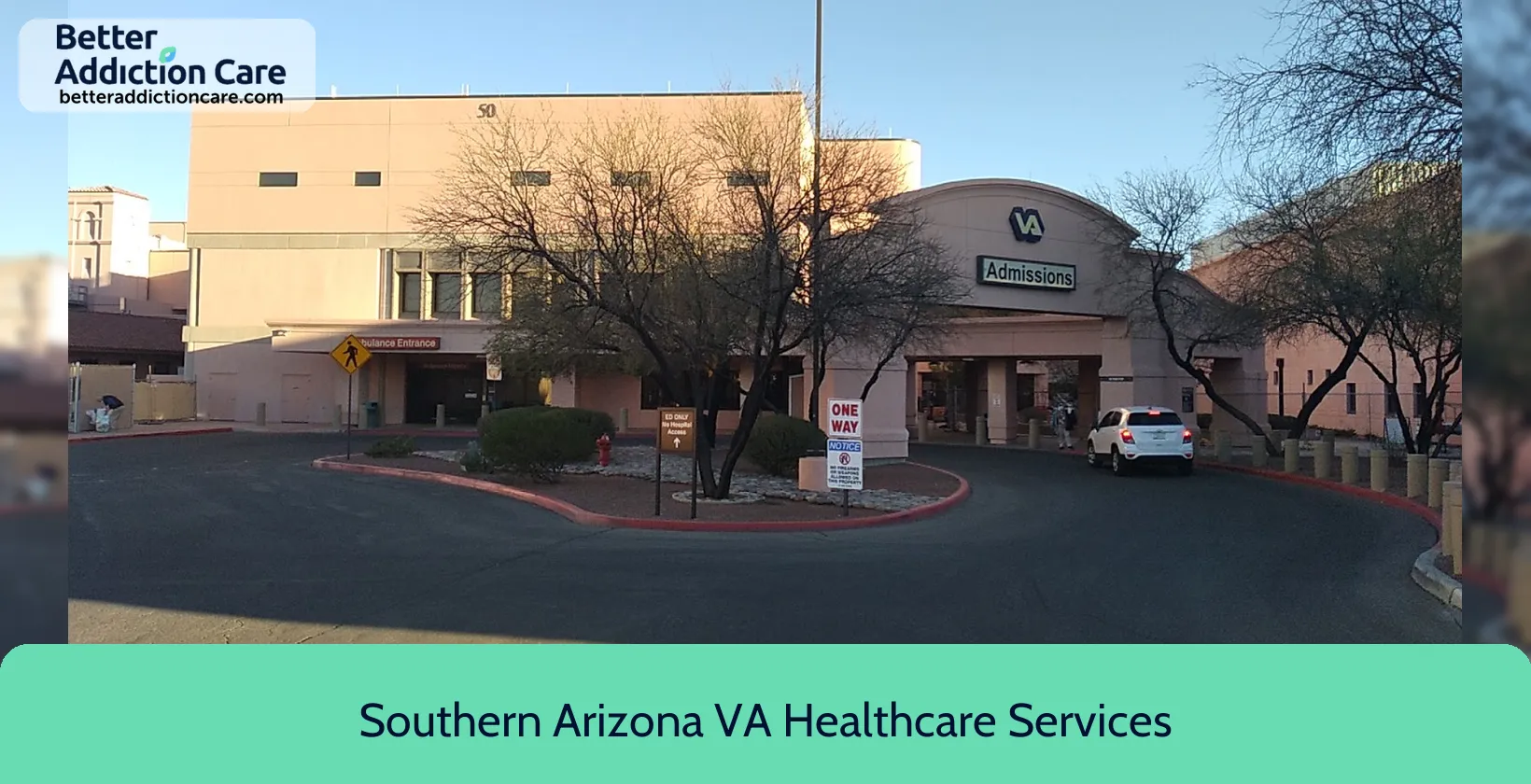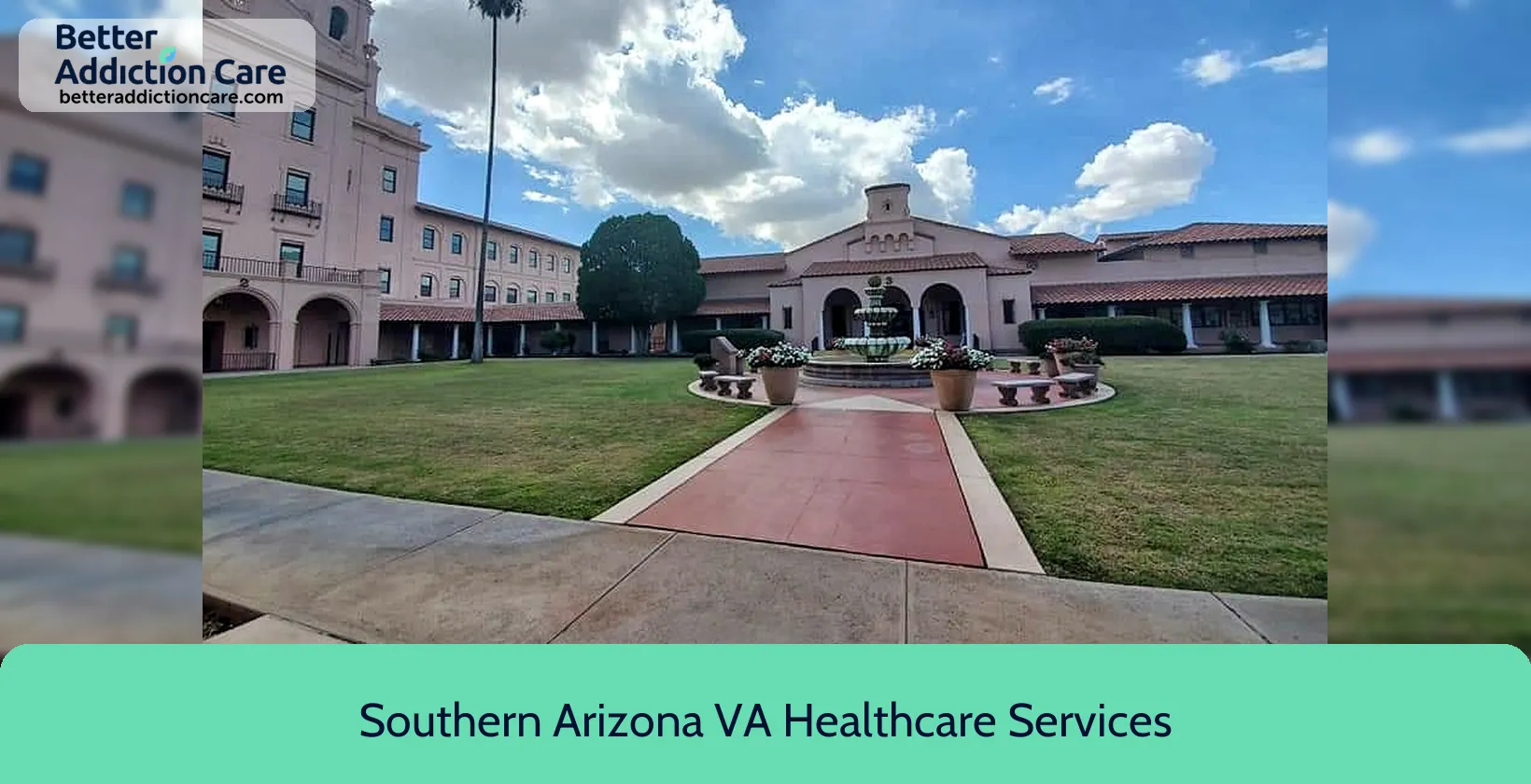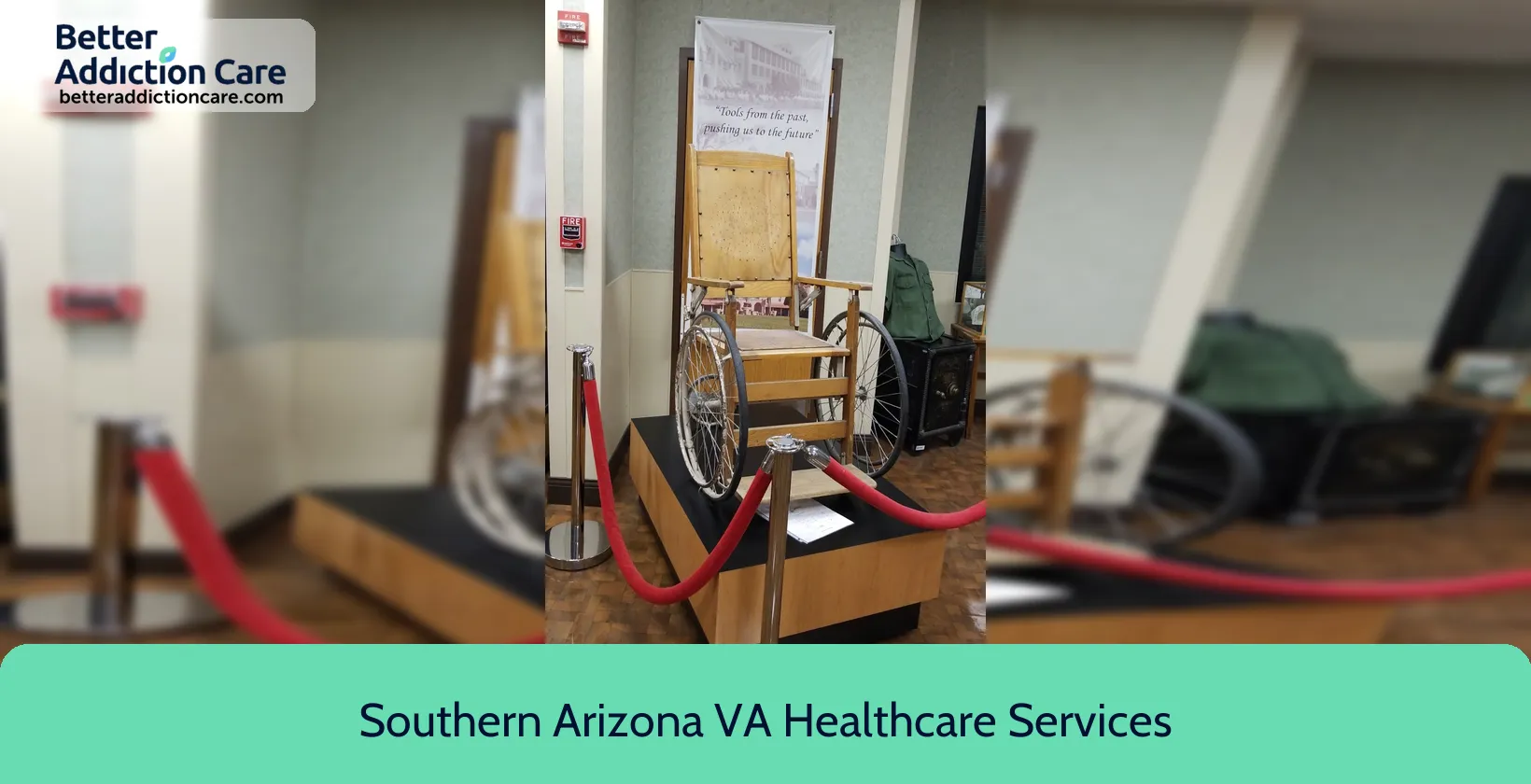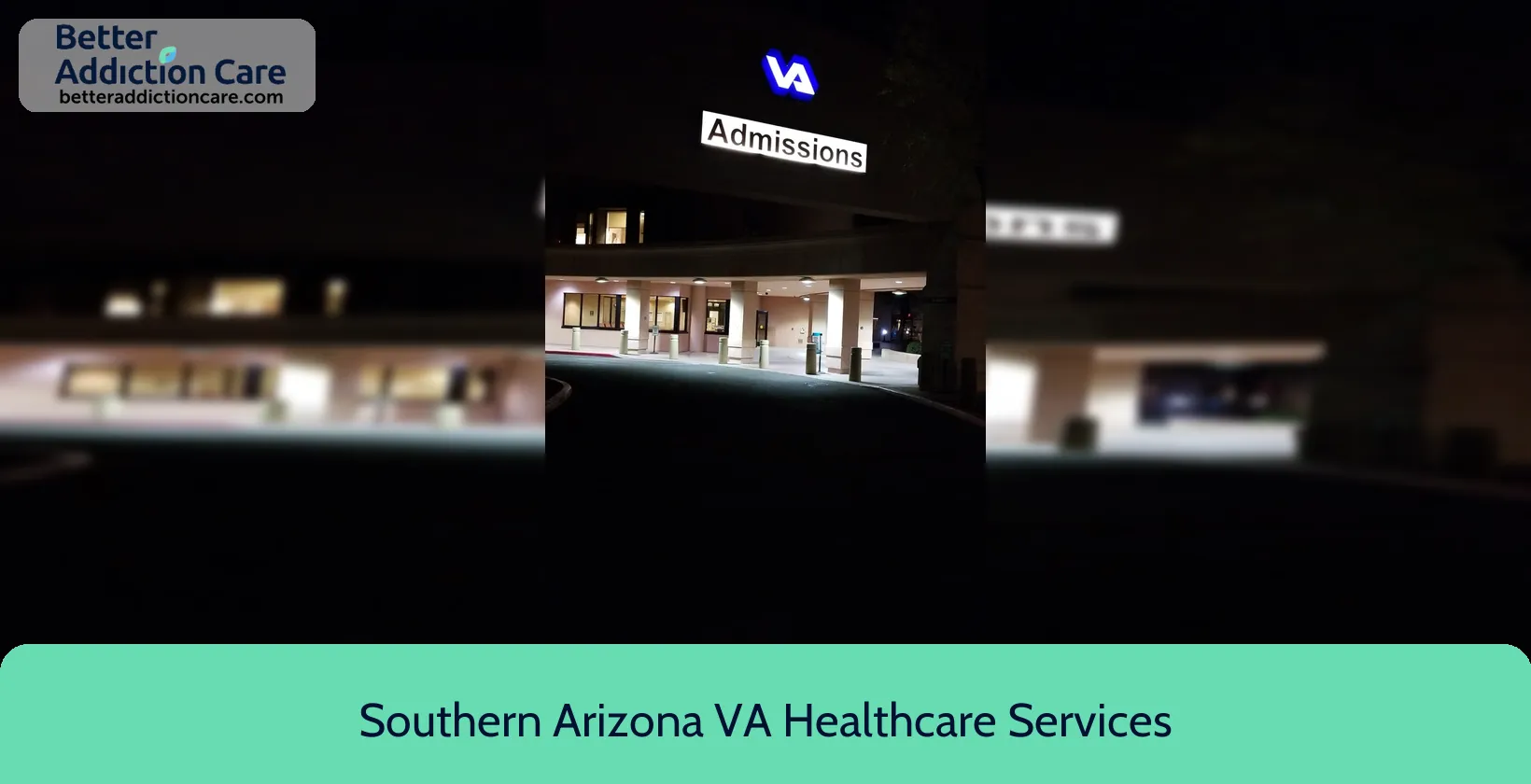Southern Arizona VA Healthcare Services
Overview
Southern Arizona VA Healthcare Services is a mental health treatment center for people seeking treatment near Pima County. As part of their treatment modalities for recovery, Southern Arizona VA Healthcare Services provides individual psychotherapy, couples/family therapy, and cognitive behavioral therapy during treatment. Southern Arizona VA Healthcare Services is located in Tucson, Arizona, accepting medicare for treatment.
Southern Arizona VA Healthcare Services at a Glance
Payment Options
- Medicare
- Private health insurance
- Federal military insurance (e.g., TRICARE)
- U.S. Department of VA funds
- Federal, or any government funding for substance use treatment programs
Assessments
- Screening for tobacco use
- Comprehensive mental health assessment
- Comprehensive substance use assessment
- Interim services for clients
- Outreach to persons in the community
Age Groups
- Seniors or older adults
- Young adults
- Adults
- Seniors
Ancillary Services
- Assertive community treatment
- Intensive case management
- Case management service
- Chronic disease/illness management
- Court-ordered outpatient treatment
Highlights About Southern Arizona VA Healthcare Services
8.03/10
With an overall rating of 8.03/10, this facility has following balanced range of services. Alcohol Rehabilitation: 8.00/10, Drug Rehab and Detox: 8.77/10, Insurance and Payments: 6.67/10, Treatment Options: 8.67/10.-
Drug Rehab and Detox 8.77
-
Treatment Options 8.67
-
Alcohol Rehabilitation 8.00
-
Insurance and Payments 6.67
Accreditations
Drug Enforcement Agency (DEA):
DEA accreditation refers to the process by which a law enforcement agency is recognized by the Drug Enforcement Agency (DEA) as having met specific training, operational, and resource requirements necessary to participate in DEA-led drug enforcement efforts. This accreditation allows the agency to perform DEA-related tasks such as conducting investigations, executing federal search warrants, and participating in joint task forces.
The Joint Commission:

The Joint Commission accreditation for addiction and behavioral health signifies that a facility has met rigorous standards in patient care, treatment, and safety. This recognition assures patients and professionals of the facility's commitment to providing high-quality, evidence-based care in the fields of addiction and behavioral health, fostering trust and confidence in their services.
Registration: 2636
SAMHSA certification for opioid treatment program (OTP):
Accreditation by the Substance Abuse and Mental Health Services Administration (SAMHSA) for Opioid Treatment Programs (OTPs) signifies that a program has met strict standards for providing high-quality care to individuals with opioid use disorders. It assures patients, families, and communities that the OTP follows evidence-based practices, employs qualified staff and maintains a safe and effective treatment environment. This accreditation reflects the program's commitment to addressing the opioid epidemic and promoting recovery.
Commission on Accreditation of Rehabilitation Facilities (CARF):

CARF accreditation is a globally recognized certification for rehabilitation and human service organizations. It signifies that an organization meets high-quality standards and is committed to providing top-level care. Achieving CARF accreditation involves a rigorous evaluation process, including on-site surveys. This accreditation enhances an organization's reputation, instills trust in clients and funders, and encourages ongoing excellence in the field.
Registration: 239195
Treatment At Southern Arizona VA Healthcare Services
Treatment Conditions
- Alcoholism
- Mental health treatment
- Substance use treatment
- Co-occurring Disorders
Care Levels
- Hospital inpatient/24-hour hospital inpatient
- Outpatient
- Short-term residential
- Long-term residential
- Residential detoxification
Treatment Modalities
- Individual psychotherapy
- Couples/family therapy
- Cognitive behavioral therapy
- Integrated Mental and Substance Use Disorder treatment
- Activity therapy
Ancillary Services
Languages
- Spanish
Additional Services
- Pharmacotherapies administered during treatment
- Mentoring/peer support
- Breathalyzer or blood alcohol testing
Special Programs
- Clients with co-occurring mental and substance use disorders
- Veterans
- Clients who have experienced trauma
- Clients who have experienced sexual abuse
- Clients who have experienced intimate partner violence, domestic violence
Get Help Now
Common Questions About Southern Arizona VA Healthcare Services
Contact Information
Other Facilities in Tucson

6.62

6.89

6.83

6.83

7.33

6.77

6.77

7.39
DISCLAIMER: The facility name, logo and brand are the property and registered trademarks of La Frontera Center - Mountain Rose, and are being used for identification and informational purposes only. Use of these names, logos and brands shall not imply endorsement. BetterAddictionCare.com is not affiliated with or sponsored by La Frontera Center - Mountain Rose.




